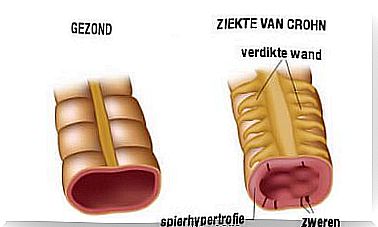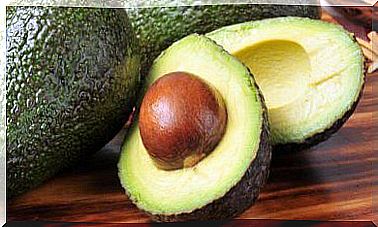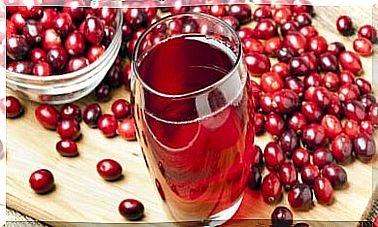Myths About Cholesterol-lowering Diets

Today , in our society, high cholesterol is becoming more and more common. This is why myths can arise quite easily about recommendations to lower it. In this article, we’ll discuss the most common myths about cholesterol-lowering diets.
Common Myths About Cholesterol-Lowering Diets
To learn how these myths about cholesterol-lowering diets arise, it’s a good idea to understand what hypercholesterolemia is and how it can affect health.
What is high cholesterol?
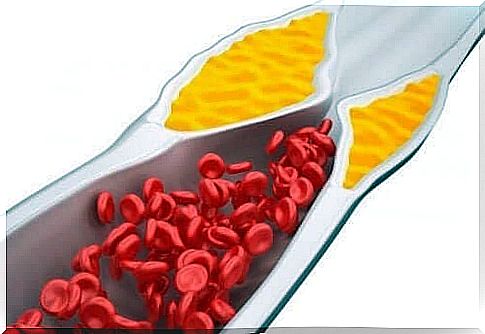
Hypercholesterolaemia is a disease characterized by high blood cholesterol. This can be a risk factor for the development of cardiovascular disease, as it promotes the formation of atheromatous plaque.
With elevated ‘bad’ cholesterol (LDL), the molecules that carry it in the blood can more easily penetrate the arterial walls of the blood vessels. There they oxidize and cause an inflammatory response in the body.
However, cholesterol is only one indicator of cardiovascular risk, among other things. In addition to checking for “good cholesterol” and “bad cholesterol,” medical professionals must also analyze inflammatory markers and whether these cholesterol molecules are large or small.
Should You Follow a Low-Fat Diet?
You’ve probably always heard the myth that you should follow a low-fat diet. If cholesterol is transported by lipids, it seems logical that if you reduce the fat in your diet, you also lower your cholesterol, especially saturated fats.
Recent studies have disproved this, however, as it appears that saturated fats raise HDL, or “good” cholesterol, more than LDL or “bad” cholesterol. In addition, experts also discovered that saturated fats do not worsen heart disease.
People often replace saturated fats with refined grains. However, this is not wise. Your diet should therefore be healthy, with sufficient fats. The best fats can be found in:
- Fatty fish
- nuts
- Extra virgin olive oil
- Avocados
Myths About Cholesterol-Lowering Diets: Does Consuming Cholesterol Raise Cholesterol?
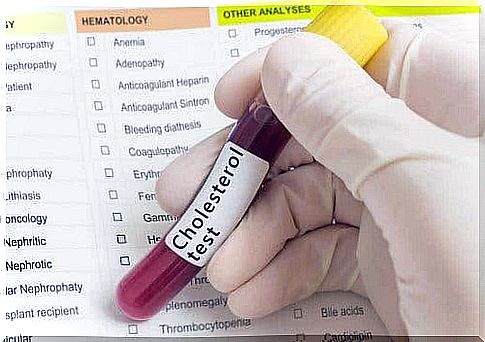
This myth originates in eggs, as many people believe that since eggs are high in cholesterol, eating too many eggs can raise your blood cholesterol levels.
However, this has been proven not to be true. In fact, regularly consuming eggs in a healthy diet can raise ‘good’ cholesterol, as this study shows.
Most studies find no association between cholesterol intake and cholesterol in the blood. Your body has a cholesterol regulation system that adjusts cholesterol synthesis to produce what it needs. The more you include in your diet, the less it produces and vice versa.
Should you eat more vegetables and less animal fat?
This depends on the type of fat each food contains. Vegetable fats, such as palm oil, mainly found in baked goods and ultra-processed foods, increase cardiovascular risk.
Refined seed oils that are high in omega-6 can be anti-inflammatory. Trans fats, also present in ultra-processed foods, are more harmful than animal fats.
So should you choose margarine instead of butter? Not decided because margarine usually contains this type of hydrogenated fat. However, butter contains saturated fats.
As for animal fats, you should know that the fats in fish (polyunsaturated) are better than the fats in meat (saturated), especially if it is processed.
Dietary Recommendations for Lowering Cholesterol
- First, the types of fats you should primarily consume come from nuts and seeds, fish (especially fatty fish), and extra virgin olive oil. You should also reduce your fat intake from processed meats and dairy products.
- Reduce your consumption of pastries and ultra-processed foods. This is because they contain trans or hydrogenated fats, refined flours, refined oils and a lot of sugar and therefore raise cholesterol levels.
- Finally, increase your consumption of soluble fiber. This is because it prevents the intestinal absorption of cholesterol and fat. You can find them in whole grains, vegetables and legumes.

